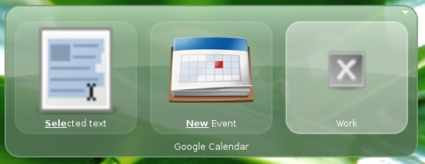Apple managed to seduce many with a combination of attractive hardware and the reliability of the operating system, ennobled by a thoughtful interface for the transition from Windows. And what happened to the free OS of the Linux family. Is it possible to find tools for productive work in them?
I'll say my conclusion right away — yes, Linux can be recommended as a productive environment for everyone who is not focused on games or intensive work with multimedia.
Judge for yourself — the installation does not require effort and is probably smoother than with Windows Vista 64, for which there were no drivers. And the need to have the same data in both Linux and Windows should not stop you: Linux can work not only with FAT, but also with NTFS, which makes it possible to move gradually, getting used to the new environment and understanding whether everything can be done and how it can be done.
After the final move, it is rare, but still there may be a problem of not having the right program, and then either a virtual machine like VirtualBox, or wrapper systems like WINE, will be useful to you. WINE runs a very large number of programs from the Windows world, including resource-demanding games.

The next element will be the productivity tools themselves, and here it is impossible to pass by startup programs like GNOME-Do and new for Linux, but our favorite Launchy. The ability to add plugins makes these programs a powerful aid in efficiency.

The next element that is considered productive is the Dock, which was born in Mac OS, but now you can get almost the same, if not more powerful in Linux, if you install Avant Window Navigator (AWN) with its almost countless applets or Cairo Dock, which is easier to configure and has a larger set of visual effects.
You may also be interested in small applications like CheckGmail and Timer Applet, which will not only allow you to quickly work with incoming messages, but also install the very time-boxes that we often talk about. TextMate fans will not find a reason to praise this program if they learn about the capabilities of GEdit. Both programs are focused more on programmers and technical writers.
Last but by no means least is the issue of the availability of information from everywhere, backup and synchronization. Now reliable and proven systems like DropBox and SpiderOak work on Linux. In addition, Google Docs fans can either automatically upload documents to the server, or install a plug-in to OpenOffice, which will allow you to edit and synchronize documents between the local storage and Google servers.
This, of course, is just a short list of what makes Linux a very attractive platform in addition to being free and virus-free.
Make Your Linux Desktop More Productive [Kevin Purdy]